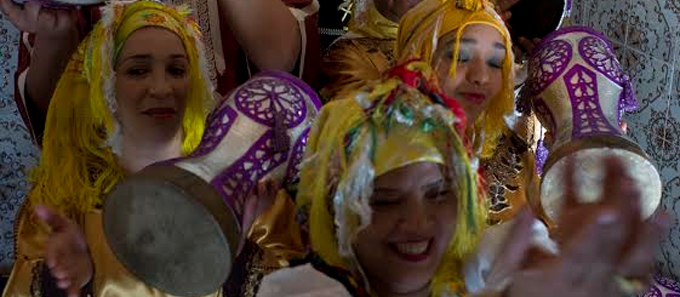
Music and Rites Ritual Music at Meknes (Morocco): Me’lmat, Jilala and Schigouri

On 19 and 20 October the Intercultural Institute of Comparative Musical Studies will launch a new series entitled Music and Rites, aimed at promoting projects associated with the music, sound and sphere of the sacred.
Curated by Domenico Staiti, the first meeting is devoted to ritual music at Meknes, Morocco, and consists of a lecture at and in collaboration with Ca’ Foscari University, Venice followed by a concert at the Fondazione Giorgio Cini. Music will be performed and analysed from three different sacred music traditions of Meknes: the Jilala brotherhood, the Me’lmat women and the Moroccan Jews Schigouri. The Jilala are a popular Sufi brotherhood whose main vocation is to perform in domestic rituals and praise the saints of Moroccan Islam as well as to evoke the jinn, the spirits from the popular pantheon. Their musical instruments include the nyra (transverse flute), bandir (frame drum with no cymbals, and a resonating cord strung inside the membrane) and the qraqeb (iron castanets).
The female groups are called Me’lmat (sing. Mallema), literally meaning “master craftswomen”. They are made up of women and/or effeminate men who enact the female trance rites for births, circumcisions and weddings, by singing and playing the gwell (goblet drum), t’bla (pair of kettledrums), bandir, and at times also the riqq (small frame drum with cymbals). Sung music accompanied by the oud in the Schigouri repertoire is akin to the modes of the great Andalusian tradition, whereas the music from the Jewish tradition, considered to be particularly sophisticated,especially in Imperial cities, is at times used to evoke some of the spirits that inhabit the syncretic, multiform world of the jinn in Morocco.
